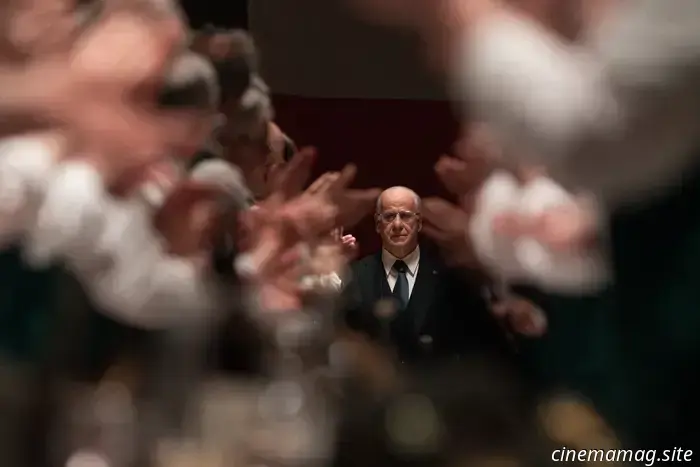
Venice Review: La Grazia Shows Paolo Sorrentino Struggling to Keep Up with Toni Servillo's Abilities.
In a somewhat unusual accomplishment, all three major European film festivals selected works by local filmmakers to launch their latest editions. Earlier this year, German director Tom Tykwer started Berlinale with The Light; French newcomer Amélie Bonnin's Leave One Day opened Cannes; and now the 82nd Venice Film Festival begins with La Grazia, the latest film from arguably the most acclaimed Italian director of the 21st century, Paolo Sorrentino. It is notably superior to the other two opening films, exploring deep questions about life and death, enhanced by Sorrentino's signature visual style. Although the resolution doesn’t fully meet the promise of the premise—often hindered by a touch of over-sentimentalism in the director’s work—fans of The Great Beauty are likely to appreciate this artfully crafted, contemplative, albeit not exceptionally incisive drama.
The film, which kept its plot a secret until its premiere, centers on Mariano De Santis (Toni Servillo), the elderly president of Italy who is six months away from the end of his term. As a former judge, De Santis is reserved, contemplative, and fixated on the concept of truth. Approaching the end of his career and life, Mariano becomes increasingly introspective and reflects on the love he had with his late wife Aurora. Additionally, he grapples with the suspicion that Aurora may have had an affair 40 years ago. While the uncertainty of his deceased wife’s former lover weighs heavily on De Santis, he must also decide whether to sign a bill legalizing euthanasia and to grant clemency to two individuals convicted of killing their spouses. Throughout the more than two-hour film, we observe the elderly man balancing his responsibilities, personal beliefs, and internal conflicts in a quest for peace.
La Grazia opens powerfully, combining style, focus, and a touch of humor. Following a captivating introductory sequence that lists the many constitutional powers of the Italian president against an energizing, unexpected sonic backdrop, we are immersed in the statesman’s daily activities, from meeting with foreign dignitaries to sharing meals with friends who speak candidly. These scenes vividly portray a privileged life that few can access, while also building a compelling protagonist who, despite extraordinary circumstances, feels authentic and vulnerable. De Santis is bound by the protocols and decorum required by his role, but he also relies on old companions like the eccentric, outspoken Coco (a standout performance by Milvia Marigliano) to challenge the political norms surrounding him. On the surface, he appears poised and dignified, yet there is significant turmoil lurking beneath. Viewers are drawn to someone like him—someone who shares doubts and insecurities like everyone else yet faces life-and-death decisions.
The second half of La Grazia, which addresses the character's deliberation on the euthanasia bill and two requests for pardons, is less impactful. When he confesses to struggling with the decision on the bill, his daughter poses a thought-provoking, ethically charged question: “Who owns our days?” Sorrentino demonstrates once more that his ambition to explore profound themes isn’t always matched by the ability to adequately unpack them. In this instance, the event that ultimately guides the conscientious protagonist to his decision feels too simplistically conceived relative to the complex dilemma it aims to resolve. The same applies to the pardon cases: their outcomes may differ, but neither receives the nuance or intellectual depth they warrant. Aside from an overflow of emotion, there isn’t much present to substantiate De Santis's grand concluding statements, such as “grace is the beauty of doubt.” It all feels rather simplistic.
Despite its narrative shortcomings, La Grazia is never a tedious watch. Shot by Daria D’Antonio, it features rich, lyrical visuals that embrace the viewer. The music is also effectively utilized, alternating between electrifying surprises and soothing melancholy with its main theme. On a technical level, Sorrentino excels at creating striking visuals. Even a simple scene, like the Portuguese president’s walk down the red carpet, is filmed with operatic intensity that also gives audiences insight into the mindset of the host on the other side. Servillo, in his seventh collaboration with Sorrentino, carries the film with his captivating presence. Compared to Jep Gambardella, his character in The Great Beauty, Mariano De Santis is equally larger-than-life yet marked by restraint. His performance often conveys emotion through stillness, drawing attention and creating an emotional connection for audiences. Servillo remains a delight, even as Sorrentino's script lacks ideas that match his talent.
It can be said that with La Grazia, Sorrentino has managed to temper his tendency for the spectacular at the expense of substance, which was notably evident in his previous film Parthenope. While the balance between style and substance is still not perfect, the film provides enough of both for an engaging experience that stimulates intellectually and emotionally.
La Grazia premiered at
Other articles
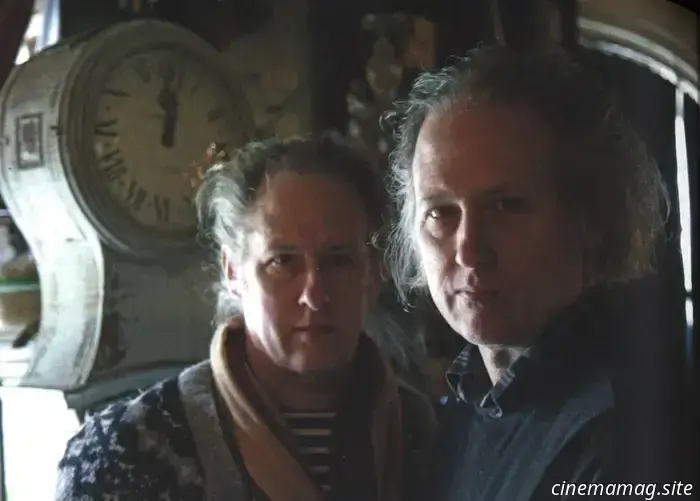 The Quay Brothers on Their Twenty-Year Journey Creating Sanatorium Under the Sign of the Hourglass
One of the most fulfilling aspects of falling in love with a film is discovering all the elements that inspired its creation. What are the books, plays, music, and paintings that influenced this artistic piece I'm experiencing? The inspirations of those who inspire you can frequently guide you.
The Quay Brothers on Their Twenty-Year Journey Creating Sanatorium Under the Sign of the Hourglass
One of the most fulfilling aspects of falling in love with a film is discovering all the elements that inspired its creation. What are the books, plays, music, and paintings that influenced this artistic piece I'm experiencing? The inspirations of those who inspire you can frequently guide you.
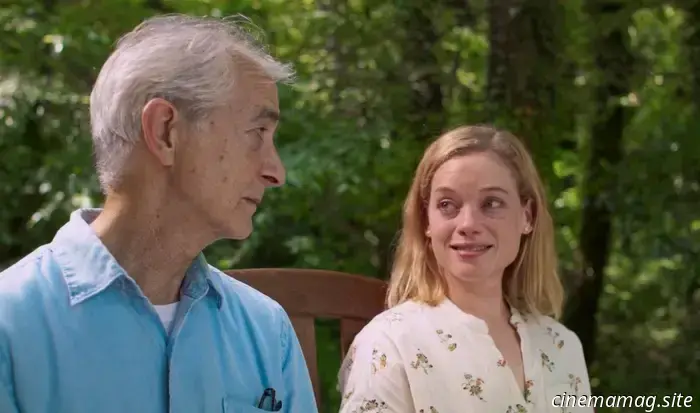 A Little Prayer Review: A Gentle Southern Family Story
Note: This review was initially included in our coverage of Sundance 2023. A Little Prayer is set to hit theaters on August 29, 2025. In the calm, serene mornings that introduce Angus MacLachlan’s A Little Prayer, a woman sings gospel songs loudly, their sounds traveling down the street. This creates an unwelcome disturbance for
A Little Prayer Review: A Gentle Southern Family Story
Note: This review was initially included in our coverage of Sundance 2023. A Little Prayer is set to hit theaters on August 29, 2025. In the calm, serene mornings that introduce Angus MacLachlan’s A Little Prayer, a woman sings gospel songs loudly, their sounds traveling down the street. This creates an unwelcome disturbance for
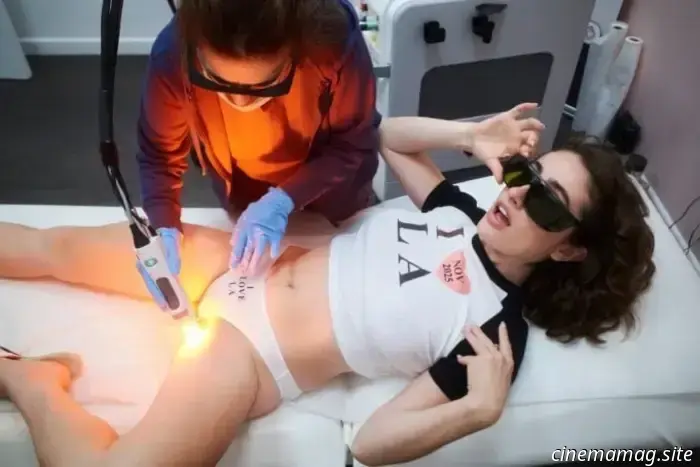 Take a first glimpse at Rachel Sennott's HBO comedy series, I Love LA.
Following her role in 2023's The Idol, Rachel Sennott, known for her performances in Shiva Baby and I Used to Be Funny, is making her HBO debut as a creator this November with her first television show. Variety has provided our first glimpse at the comedy series titled I Love LA. Although specific details are limited, the show will center around […]
Take a first glimpse at Rachel Sennott's HBO comedy series, I Love LA.
Following her role in 2023's The Idol, Rachel Sennott, known for her performances in Shiva Baby and I Used to Be Funny, is making her HBO debut as a creator this November with her first television show. Variety has provided our first glimpse at the comedy series titled I Love LA. Although specific details are limited, the show will center around […]
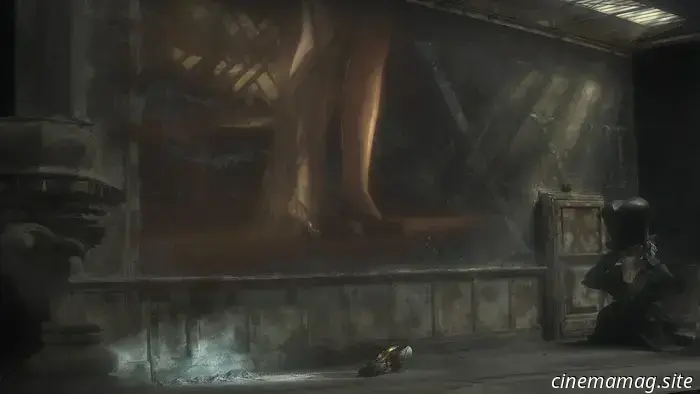 Review of "Sanatorium Under the Sign of the Hourglass": The Brothers Quay Make Their Comeback
Note: This review was first published as part of our coverage for the 2024 BFI London Festival. Sanatorium Under the Sign of the Hourglass will be released in theaters on August 29. Timothy and Stephen Quay have created a distinctive approach in the realm of stop-motion animation: dynamic yet precisely managed; it elegantly intertwines sound and visuals in a balletic manner.
Review of "Sanatorium Under the Sign of the Hourglass": The Brothers Quay Make Their Comeback
Note: This review was first published as part of our coverage for the 2024 BFI London Festival. Sanatorium Under the Sign of the Hourglass will be released in theaters on August 29. Timothy and Stephen Quay have created a distinctive approach in the realm of stop-motion animation: dynamic yet precisely managed; it elegantly intertwines sound and visuals in a balletic manner.
Venice Review: La Grazia Shows Paolo Sorrentino Struggling to Keep Up with Toni Servillo's Abilities.
In a rather unusual occurrence, all three major European film festivals opted to showcase the creations of local talents to launch their latest editions. Earlier this year, German filmmaker Tom Tykwer premiered The Light at Berlinale; French newcomer Amélie Bonnin's Leave One Day had the honor of starting Cannes; and now the 82nd Venice...
